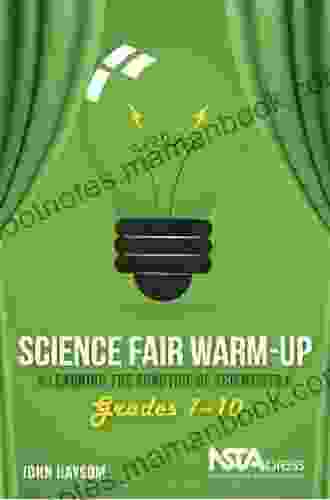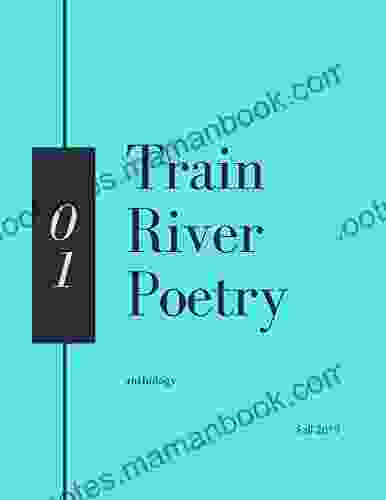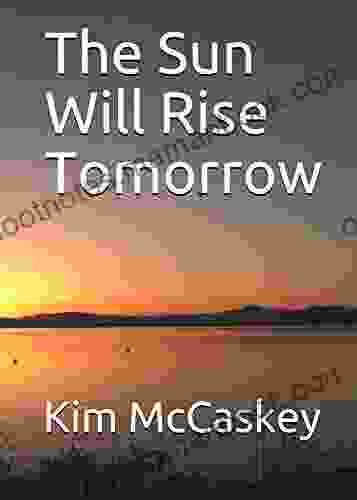Science Fair Warm Up Grades 7 10: Learning The Practice Of Scientists

Science is a systematic and organized approach to understanding the world around us. It involves making observations, forming hypotheses, testing those hypotheses through experiments, and drawing s based on the evidence. The scientific method is a fundamental tool used by scientists to investigate and explain natural phenomena.
In this article, we will explore the practice of scientists, delving into the steps involved in the scientific method and providing examples of how it is used in various fields of study. We will also discuss the importance of critical thinking, skepticism, and open-mindedness in scientific research.
Steps of the Scientific Method
4.7 out of 5
| Language | : | English |
| File size | : | 3452 KB |
| Text-to-Speech | : | Enabled |
| Enhanced typesetting | : | Enabled |
| Word Wise | : | Enabled |
| Print length | : | 60 pages |
| Lending | : | Enabled |
| Screen Reader | : | Supported |
The scientific method is a cyclical process that typically involves the following steps:
Observation: Scientists make observations about the world around them and identify a problem or phenomenon that they want to investigate.
Hypothesis: Based on their observations, scientists formulate a hypothesis, which is a testable explanation for the phenomenon being investigated.
Experiment: Scientists design and conduct experiments to test their hypothesis. They control variables and collect data to support or refute their hypothesis.
Analysis: Scientists analyze the data collected from their experiments and draw s based on the evidence.
: Scientists communicate their findings and s through scientific papers, presentations, and other forms of scholarly discourse.
Examples of the Scientific Method in Practice
Biology: Scientists use the scientific method to study the behavior of animals, the structure of plants, and the causes of diseases. For example, they might observe that certain animals behave differently in different environments and formulate a hypothesis that their behavior is influenced by genetic factors. They would then conduct experiments to test this hypothesis and collect data to support or refute it.
Chemistry: Scientists use the scientific method to investigate the properties and reactions of matter. For example, they might observe that a certain chemical reaction produces a gas and formulate a hypothesis that the reaction releases energy. They would then conduct experiments to test this hypothesis and collect data to support or refute it.
Physics: Scientists use the scientific method to study the laws of nature, such as the laws of motion and the laws of thermodynamics. For example, they might observe that objects dropped from a height fall at the same rate and formulate a hypothesis that all objects fall at the same rate in a vacuum. They would then conduct experiments to test this hypothesis and collect data to support or refute it.
Importance of Critical Thinking, Skepticism, and Open-mindedness
Critical thinking is essential in scientific research because it allows scientists to evaluate evidence objectively and form sound judgments. Scientists must be skeptical of their own hypotheses and the hypotheses of others, questioning the assumptions and evidence presented. They must also be open-minded and willing to consider new ideas and alternative explanations.
The practice of scientists is a rigorous and systematic approach to understanding the world around us. Scientists make observations, form hypotheses, test those hypotheses, and draw s based on the evidence. The scientific method is a fundamental tool for scientific research, and it helps us to gain a better understanding of the natural world.
Critical thinking, skepticism, and open-mindedness are essential qualities for scientists. They must be able to evaluate evidence objectively, question assumptions, and consider alternative explanations. By embracing these qualities, scientists can contribute to the advancement of knowledge and help us to better understand the world.
4.7 out of 5
| Language | : | English |
| File size | : | 3452 KB |
| Text-to-Speech | : | Enabled |
| Enhanced typesetting | : | Enabled |
| Word Wise | : | Enabled |
| Print length | : | 60 pages |
| Lending | : | Enabled |
| Screen Reader | : | Supported |
Do you want to contribute by writing guest posts on this blog?
Please contact us and send us a resume of previous articles that you have written.
 Top Book
Top Book Novel
Novel Fiction
Fiction Nonfiction
Nonfiction Literature
Literature Paperback
Paperback Hardcover
Hardcover E-book
E-book Audiobook
Audiobook Bestseller
Bestseller Classic
Classic Mystery
Mystery Thriller
Thriller Romance
Romance Fantasy
Fantasy Science Fiction
Science Fiction Biography
Biography Memoir
Memoir Autobiography
Autobiography Poetry
Poetry Drama
Drama Historical Fiction
Historical Fiction Self-help
Self-help Young Adult
Young Adult Childrens Books
Childrens Books Graphic Novel
Graphic Novel Anthology
Anthology Series
Series Encyclopedia
Encyclopedia Reference
Reference Guidebook
Guidebook Textbook
Textbook Workbook
Workbook Journal
Journal Diary
Diary Manuscript
Manuscript Folio
Folio Pulp Fiction
Pulp Fiction Short Stories
Short Stories Fairy Tales
Fairy Tales Fables
Fables Mythology
Mythology Philosophy
Philosophy Religion
Religion Spirituality
Spirituality Essays
Essays Critique
Critique Commentary
Commentary Glossary
Glossary Bibliography
Bibliography Index
Index Table of Contents
Table of Contents Preface
Preface Introduction
Introduction Foreword
Foreword Afterword
Afterword Appendices
Appendices Annotations
Annotations Footnotes
Footnotes Epilogue
Epilogue Prologue
Prologue Clea Shearer
Clea Shearer Marsha Kerr Talley
Marsha Kerr Talley Paul Arthur
Paul Arthur Jennifer Lenhardt
Jennifer Lenhardt Charlotte Byrd
Charlotte Byrd Marita A Hansen
Marita A Hansen Carl Menger
Carl Menger Eileen Figure Sandlin
Eileen Figure Sandlin Wanda Weathersby
Wanda Weathersby Valerie Strawmier
Valerie Strawmier Amy Webb
Amy Webb Alan Judd
Alan Judd Sumiti Mehta
Sumiti Mehta Rebecca Chance
Rebecca Chance Kyndra Hatch
Kyndra Hatch Billie Coleman
Billie Coleman Mike Cohn
Mike Cohn Karen Hines
Karen Hines Admiral William H Mcraven
Admiral William H Mcraven Christine E Ray
Christine E Ray
Light bulbAdvertise smarter! Our strategic ad space ensures maximum exposure. Reserve your spot today!

 Fyodor DostoevskyFruits Basket: Delving into the Three Musketeers Arc, an Odyssey of Bonds and...
Fyodor DostoevskyFruits Basket: Delving into the Three Musketeers Arc, an Odyssey of Bonds and...
 Michael SimmonsThe McDougall Program for Maximum Weight Loss: A Comprehensive Guide to...
Michael SimmonsThe McDougall Program for Maximum Weight Loss: A Comprehensive Guide to... Tony CarterFollow ·7.8k
Tony CarterFollow ·7.8k Forrest ReedFollow ·2.1k
Forrest ReedFollow ·2.1k Patrick HayesFollow ·8.6k
Patrick HayesFollow ·8.6k Miguel de CervantesFollow ·14.5k
Miguel de CervantesFollow ·14.5k John GreenFollow ·16.2k
John GreenFollow ·16.2k Chuck MitchellFollow ·12.5k
Chuck MitchellFollow ·12.5k Craig CarterFollow ·15.5k
Craig CarterFollow ·15.5k Emilio CoxFollow ·3.5k
Emilio CoxFollow ·3.5k
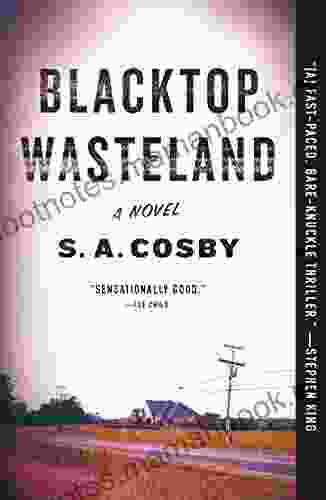
 Colin Foster
Colin FosterBlacktop Wasteland: A Novel S A Cosby
In the vast literary landscape of...
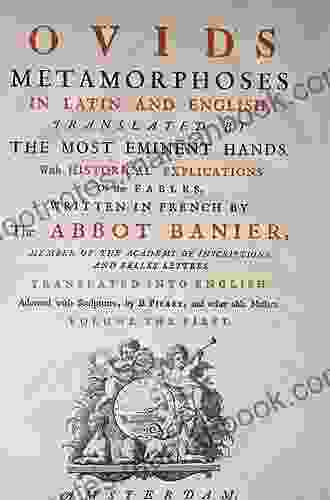
 Curtis Stewart
Curtis StewartOvid's Metamorphoses: An Ancient Epic of Transformation...
Ovid's Metamorphoses is an epic poem...

 Adam Hayes
Adam HayesThe Elements of Piano Playing Op. 30: A Comprehensive...
: Unveiling...
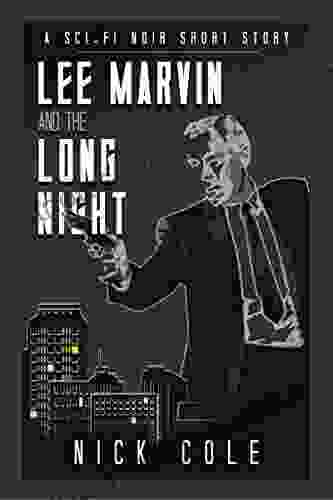
 Patrick Hayes
Patrick HayesLee Marvin and The Long Night: A Tale of Vengeance, Grit,...
In the annals of Western cinema, few...

 Jermaine Powell
Jermaine PowellUnveiling the Alluring World of Romantic Thrillers,...
Prepare to delve into a...
4.7 out of 5
| Language | : | English |
| File size | : | 3452 KB |
| Text-to-Speech | : | Enabled |
| Enhanced typesetting | : | Enabled |
| Word Wise | : | Enabled |
| Print length | : | 60 pages |
| Lending | : | Enabled |
| Screen Reader | : | Supported |


